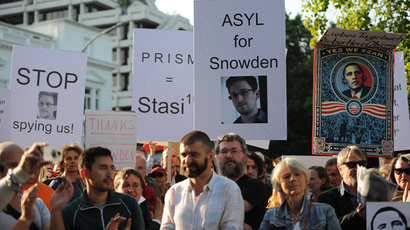NSA broke its own rules in 'virtually every' record, declassified documents show

The National Security Agency systematically broke its own rules and collected information it wasn't supposed to, according to 1,000 pages of highly redacted classified files released for the first time by the Obama administration.
The documents include 2009 court records in which the NSA
acknowledged it improperly collected data despite repeated
assurances to the contrary. The NSA engaged in what John D.
Bates, the presiding judge over the Foreign Intelligence
Surveillance Act (FISA) court, called "systemic
overcollection."
"Virtually every" record generated by the program
"included some data that had not been authorized for
collection," the Guardian cites Bates as saying. Bates noted
that the problems were endemic since the program’s inception.
In one instance, the government admitted its violations resulted
from "poor management, lack of involvement by compliance
officials and lack of internal verification procedures, not by
bad faith," the Associated Press reports. In another case,
the NSA says it improperly collected information because of a
typographical error.
Bates, who presided over the 2009 case, said the that fact
persistent abuses continued despite repeated assurances they were
being reined in,showed "those responsible for conducting
oversight at the NSA had failed to do so effectively." Bates
characterized his conclusion as "the most charitable
interpretation possible."
Also released amidst the trove of documents is what appeared to
be the original court document authorizing the National Security
Agency to conduct full-scale collections of Americans’
communication records for the purpose of counterterrorism.
The so-called metadata, which provided the NSA with information
about the time and place of phone calls, email addresses, ISP
numbers and other “information about information,” is not offered
Fourth Amendment protections, Bates predecessor Colleen
Kollar-Kotelly ruled at the time.
Director of National Intelligence James Clapper released the
information in response to part of an on-going civil liberties
lawsuit challenging the constitutionality of the government's
sweeping phone-record collection activities.
The AP notes that the files released Monday night were so heavily
redacted that one of the two justifications for the government’s
telephone metadata surveillance program was itself blacked out.
Clapper also moved to release the documents following a
presidential directive, as the Obama administration is vigorously
defending its right to collect American’s phone records amid
congressional and public opposition.
Meanwhile, the US Supreme Court said on Monday it would not review a case presented
by the Electronic Privacy Information Center (EPIC) challenging a
ruling by the Foreign Intelligence Surveillance Court which gave
the government access to records kept by Verizon Communications
Inc on millions of telephone calls.
The Supreme Court did not elaborate on why it rejected the
petition, although it was likely rooted in EPIC’s decision to
appeal directly to the high court rather than work its way
through the federal court system.
The intelligence court's activities have come under increased
scrutiny following a June report by the Guardian which revealed
the NSA continues to collect the telephone records of millions of
unwitting individuals.
Other legal challenges are currently being contested in lower
courts in which citizens are opposing the NSA surveillance
practices following leaks by Former NSA contractor Edward
Snowden. The large tech firms Google and Microsoft, meanwhile,
are battling the government in the secretive FISA court in an
effort to release more data about the surveillance requests they
receive.














